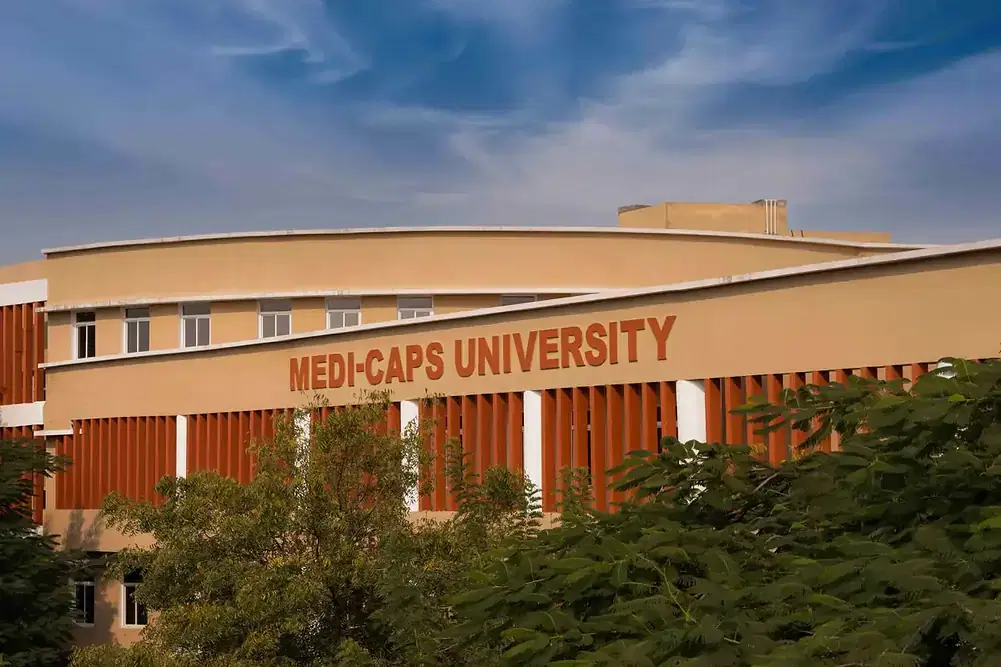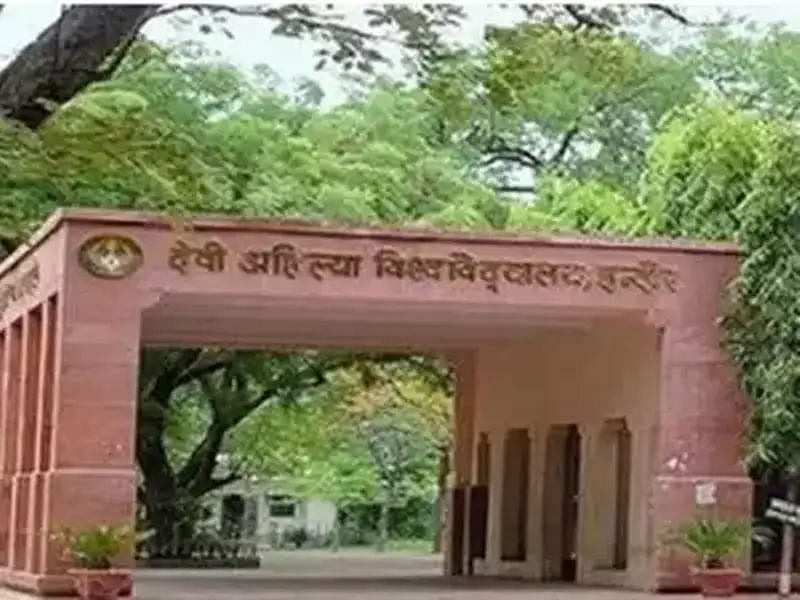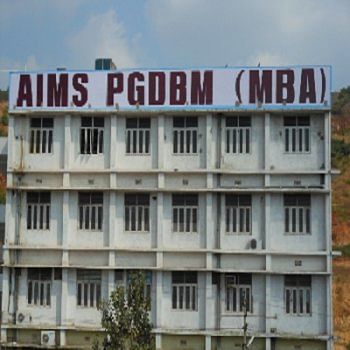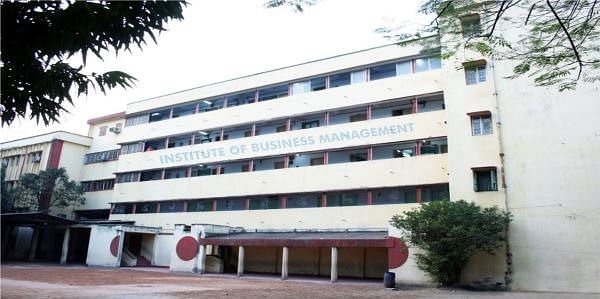MBA in Foreign Trade: Course Details, Eligibility, Admission, Fees

MBA in Foreign Trade is a two-year postgraduate program that focuses on equipping students with a comprehensive understanding of international business dynamics, trade regulations, and global market trends. MBA in Foreign Trade covers subjects such as international marketing, logistics, finance, and cross-cultural management, preparing graduates for roles in multinational corporations, government agencies, and trade organizations.
MBA in Foreign Trade admissions are determined either through entrance exams or based on merit. To be eligible, candidates need to have a minimum of 55% in their bachelor's degree, with 5% relaxations for candidates belonging to reserved categories. The average fee for an MBA in Foreign Trade programs ranges between INR 30,000 - 3 LPA.
Table of Contents
- About MBA in Foreign Trade
- MBA in Foreign Trade Eligibility
- Why Choose an MBA in Foreign Trade Course?
- MBA in Foreign Trade Admission Process
- Popular MBA in Foreign Trade Entrance Exams
- Top Colleges for MBA in Foreign Trade
- MBA in Foreign Trade Syllabus and Subjects
- MBA in Foreign Trade vs. MBA in International Business
- Salary of an MBA Foreign Trade Graduate
- Courses after MBA in Foreign Trade
- Career After MBA in Foreign Trade
- Skills to Excel in Foreign Trade
MBA in Foreign Trade Course Details
| Degree | Masters |
| Full Form | Master of Business Administration in Foreign Trade |
| Duration | 2 Years |
| Age | No Age Limit |
| Entrance Exam | CAT, GMAT, XAT |
| Subjects Required | Commerce |
| Minimum Percentage | Bachelor's Degree with a minimum score of 50% and relaxations of 5% for reserved category candidates. |
| Average Fees | ₹3 - 5 LPA |
| Average Salary | INR 5 - 10 LPA |
| Employment Roles | International Business Manager, Export-Import Manager, Supply Chain Analyst, Global Sourcing Manager, Market Research Analyst |
| Top Recruiters | Reliance Industries, Amazon, TCS, Genpact, Infosys |
About MBA in Foreign Trade
MBA in Foreign Trade falls under the umbrella of MBA programs, offering students a blend of business and management acumen tailored to navigate the complexities of international trade and commerce. Completing an MBA in Foreign Trade allows graduates to work across diverse industries, handling international trade operations, market analysis, and global business strategies.
Admission to MBA in Foreign Trade programs is facilitated through entrance exams like CAT, MAT, and XAT, group discussions, and personal interviews. Graduates have access to various career options such as International Business Manager, Export-Import Manager, Supply Chain Analyst, Trade Compliance Specialist, Global Sourcing Manager, and Market Research Analyst.
MBA in Foreign Trade Eligibility
To apply for an MBA in Foreign Trade, candidates must meet specific eligibility requirements. These criteria may vary among institutions, but the following points outline the fundamental prerequisites for admission:
- Candidates should have a minimum of 50% in their bachelor's degree.
- Reserved category candidates are eligible for a relaxation of up to 5% in the minimum required percentage.
- There are no specific subject requirements, but candidates with a background in economics, commerce, or related fields may have an advantage.
- Meeting the necessary cutoff scores in entrance exams such as CAT, MAT, XAT, etc., is a crucial requirement for admission.
Why Choose an MBA in Foreign Trade Course?
MBA in Foreign Trade empowers individuals to become valuable assets in the global business arena and make a significant impact on international trade and commerce. Choosing an MBA in Foreign Trade offers several compelling reasons for individuals interested in pursuing a career in international business and trade:
- Career Opportunities: With India's imports estimated to grow by 29.47% in April-November 2022 compared to the same period last year, skilled foreign trade professionals are vital for managing increased cross-border transactions.
- Global Perspective: The program provides a deep understanding of international trade dynamics, policies, and market trends, enabling graduates to excel in the global business landscape.
- Market Expansion: Amid India's trade growth, such as the 10.97% positive export growth in November 2022 year-on-year, the need for skilled professionals contributing to export goals is evident.
- Contribution to Economic Growth: Proficiency in foreign trade management contributes to national and international economic growth by facilitating cross-border transactions and international business relationships.
MBA in Foreign Trade Admission Process
Admission to MBA in Foreign Trade programs can be pursued through either merit-based selection, entrance exams, or a combination of both depending on the university's policies. The selection process takes into account candidates' overall academic performance, entrance examination scores, and notable achievements. While the specific procedure might differ among institutions, the general admission process can be outlined as follows:
- Step 1. Eligible candidates need to access and complete the application form, either through the online portal or by visiting the campus in person.
- Step 2. Candidates are required to appear for specified entrance exams and provide the corresponding scores as stipulated by the chosen university.
- Step 3. Shortlisted candidates will be invited to participate in a Personal Interview (PI) and Group Discussion (GD) as part of the selection process.
- Step 4. After the PI and GD rounds, the final selected candidates are expected to submit the necessary documents and pay the applicable admission fee to secure seats.
Popular MBA in Foreign Trade Entrance Exams
Entrance exams for admissions to various MBA programs are conducted across the country at the state, national and university levels. Listed in the table below are some popular entrance exams for admission to an MBA in Foreign Trade:
|
Entrance Exam |
Accepting Colleges |
Registration Date |
|
CAT |
IGNOU |
Aug 2 - Sep 13, 2023 |
|
MAT |
IGNOU |
Jul 11 - Sep 12, 2023 |
|
CMAT |
DAV |
February 2024 |
|
NMAT |
NMIMS |
Aug 1 - Oct 10, 2023 |
Top Colleges for MBA in Foreign Trade
MBA in Foreign Trade programs are offered by various universities, providing students with a comprehensive understanding of international business dynamics and trade operations. The fee structure for these programs can vary significantly based on factors such as the university's reputation, location, duration of the program, and additional facilities provided.
Listed in the table below are some universities that offer MBA in Foreign Trade along with their average fee structure:
|
University |
Admission Fee |
Annual Average Fee |
|
NMIMS |
INR 6,200 |
INR 91,000 PA |
|
DPSRU |
INR 5,000 |
INR 1.1 LPA PA |
|
IGNOU |
INR 1,100 |
INR 31,000 PA |
|
DAV, Indore |
INR 4,000 (Refundable) |
INR 65,000 PA |
|
National Institute of Management Solutions |
- |
INR 22,500 PA |
MBA in Foreign Trade Syllabus and Subjects
An MBA in Foreign Trade equips students with a comprehensive understanding of global trade dynamics and strategies, preparing them to excel in international business environments. The MBA in Foreign Trade syllabus covers a diverse range of subjects, enabling students to develop expertise in areas such as international marketing, logistics, trade policies, and cross-cultural management.
Listed below is an outline of the key subjects usually included in the MBA in Foreign Trade course:
|
Subjects |
Topics Covered |
|
Global Business Environment |
International Business, Multinational Corporations, Foreign Exchange Market, Exchange Rates, Liberalization and Foreign Investment |
|
Foreign Trade Documentation Procedures |
International Trade, Starting an Export Organization, Export Documentation, Export Finance, Import Procedure and Documentation |
|
World Trade Organisation |
History, Structure and Nature, Policies and Services, Foreign Trade Policy |
|
India’s Foreign Trade |
Nature, Organisation, Policy, India and WTO, International Trade Operation and Foreign Trade Policy |
|
Insurance and Risk Management in Foreign Trade |
Theory of Insurance, Insurance Contracts & Regulations, Introduction to Risk Management, Types of Risks and its Management, Types of Risks and its Management |
|
Computer Applications in Foreign Trade |
Introduction to Windows, Introduction to Databases, E-commerce, Web Terminology |
|
Business Statistics |
Introduction, Measures of central tendency & dispersion, Measures of Central Tendency and Dispersion, Sampling and Probability distributions, Correlation and regression analysis, Statistical methods and application |
MBA in Foreign Trade vs. MBA in International Business
Comparing MBA in Foreign Trade and MBA in International Business can help individuals discern the nuances between these two specialized programs. Both courses are tailored to prepare professionals for global business environments, yet they emphasize different aspects of international commerce. Detailed in the table below is a course comparison between an MBA in Foreign Trade and an MBA in International Business.
|
Parameters |
MBA in Foreign Trade |
MBA in International Business |
|
Full-Form |
Master of Business Administration in Foreign Trade |
Master of Business Administration in International Business |
|
Overview |
This program hones expertise in the intricacies of international trade operations, cross-border transactions, trade regulations, and logistics. |
This program offers a broader scope, covering various facets of international business strategy, global market expansion, cross-cultural management, and multinational operations. |
|
Eligibility |
50% in graduation for unreserved category and 45% for reserved categories |
50% in graduation for unreserved category and 45% for reserved categories |
|
Duration |
2 Years |
2 Years |
|
Average Fee |
INR 30,000 - 3 LPA |
INR 25,000-8 LPA |
|
Job Roles |
International Business Manager, Export-Import Manager, Supply Chain Analyst, Global Sourcing Manager, Market Research Analyst |
Business Development Manager, Business Analyst, Operations Manager, Area Sales Manager, Business Development Executive |
|
Average Salary |
INR 5 - 10 LPA |
INR 6-10 LPA |
Salary of an MBA Foreign Trade Graduate
The average salary range for MBA in Foreign Trade graduates typically falls between INR 5 - 10 LPA. However, this salary range is influenced by several variables such as experience, job role, geographical location, and more. Remuneration tends to grow in proportion to accumulated work experience. The following breakdown presents a comprehensive overview of salary packages for both fresh graduates and professionals with 5 years of work experience:
|
Jobs |
Description |
Average Salary For Fresher |
Average Salary After 5 Years |
|
Export-Import Executive |
Managing cross-border trade operations, negotiating contracts, and ensuring compliance with trade regulations. |
INR 3.2 LPA |
INR 7 LPA |
|
Supply Chain Analyst |
Optimizing supply chain processes to ensure efficient movement of goods across borders, minimizing costs and risks. |
INR 3 LPA |
INR 6 LPA |
|
Global Sourcing Specialist |
Identifying and managing suppliers from different countries to optimize procurement strategies. |
INR 3 LPA |
INR 6.2 LPA |
|
Foreign Trade Consultant |
Providing expert advice on trade regulations, market entry strategies, and international business expansion. |
INR 3 LPA |
INR 6.5 LPA |
|
Diplomat/Trade Officer |
Working for government agencies or international organizations, promoting trade relations between countries. |
INR 3.1 LPA |
INR 7 LPA |
|
Trade Compliance Specialist |
Ensuring adherence to international trade laws and regulations, managing documentation and customs procedures. |
INR 3 LPA |
INR 6 LPA |
Courses after MBA in Foreign Trade
A graduate with an MBA in Foreign Trade can increase their credibility and improve their employment opportunity by pursuing advanced academic courses and certification programs after the completion of the degree. Listed below are some of the popular higher education options available for students:
Career After MBA in Foreign Trade
After completing an MBA in Foreign Trade, graduates have a wide array of career opportunities across various industries that involve international business and trade. Some of the prominent career paths include:
- International Business Manager
- Export-Import Manager
- Supply Chain Analyst
- Global Sourcing Manager
- Market Research Analyst
- Logistics Manager
- International Marketing Manager
- Global Business Development Manager
- Diplomat/Trade Officer
Top Recruiters
Several top recruiters in India seek MBA in Foreign Trade graduates for their expertise in international business and trade. Export-Import Organizations, MNCs, Consultancies, Government Trade Departments, and Manufacturing Industries are some common recruiting industries. Listed below are some of the top recruiters with their annual average salary:
|
Top Recruiters |
Average Salary |
|
Reliance Industries |
INR 8.8 LPA |
|
Amazon |
INR 15 LPA |
|
TCS |
INR 6 LPA |
|
Genpact |
INR 12 LPA |
|
Infosys |
INR 8 LPA |
Skills to Excel in Foreign Trade
Professionals in foreign trade require a diverse set of skills to navigate the complexities of international trade. Cultivating these skills enhances a professional's ability to excel in the field of foreign trade management and contribute to the success of global business operations. Some essential skills include:
- Market Research: The ability to gather and analyze data on international market trends, consumer preferences, and competitor strategies to make informed decisions.
- International Trade Regulations: Understanding trade policies, customs procedures, and compliance regulations to ensure seamless cross-border transactions.
- Negotiation and Relationship Building: Skill in negotiating contracts, establishing partnerships, and building strong relationships with international clients and suppliers.
- Financial Acumen: Understanding international finance, foreign exchange management, and trade finance instruments to manage financial aspects of global transactions.
- Adaptability: Being open to changes in different cultural and business environments, and quickly adjusting strategies based on market dynamics.
- Language Proficiency: Proficiency in languages other than your native tongue can enhance communication and relationship-building with international stakeholders.
Top MBA in Foreign Trade Colleges
Top Management Entrance Exams
MBA in Foreign Trade Fee Structure
FAQs on MBA in Foreign Trade
Q: Are there specific entrance exams for MBA in Foreign Trade admission?
Q: What is the salary of an MBA in Foreign Trade?
Q: What is the job scope after MBA in Foreign Trade?
Q: How does an MBA in Foreign Trade differ from an MBA in International Business?
Q: What can I do after MBA in Foreign Trade?
















